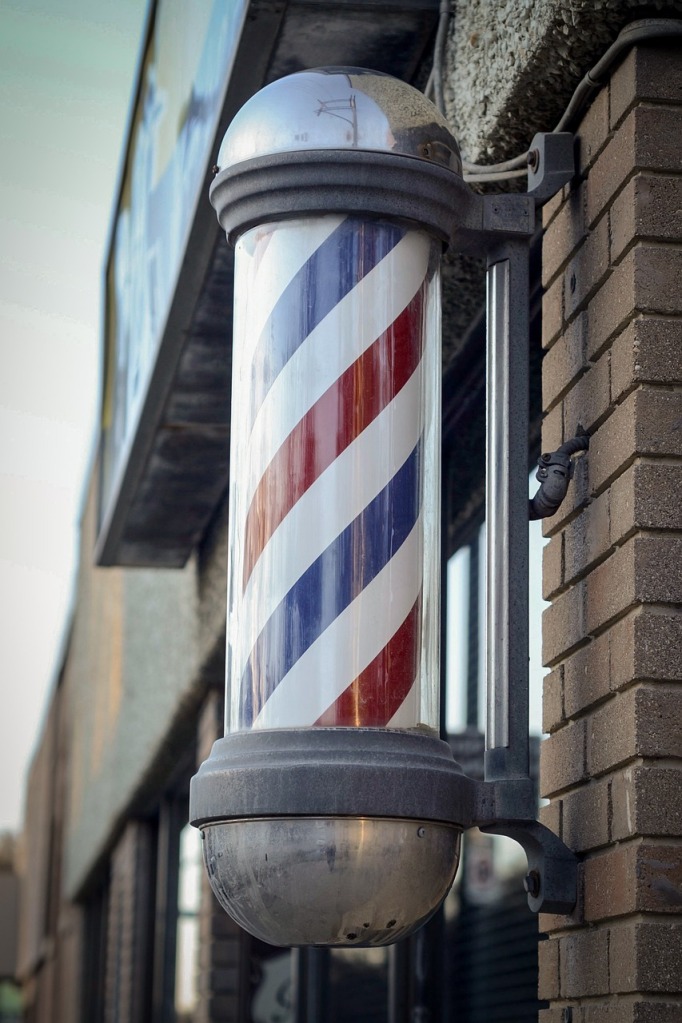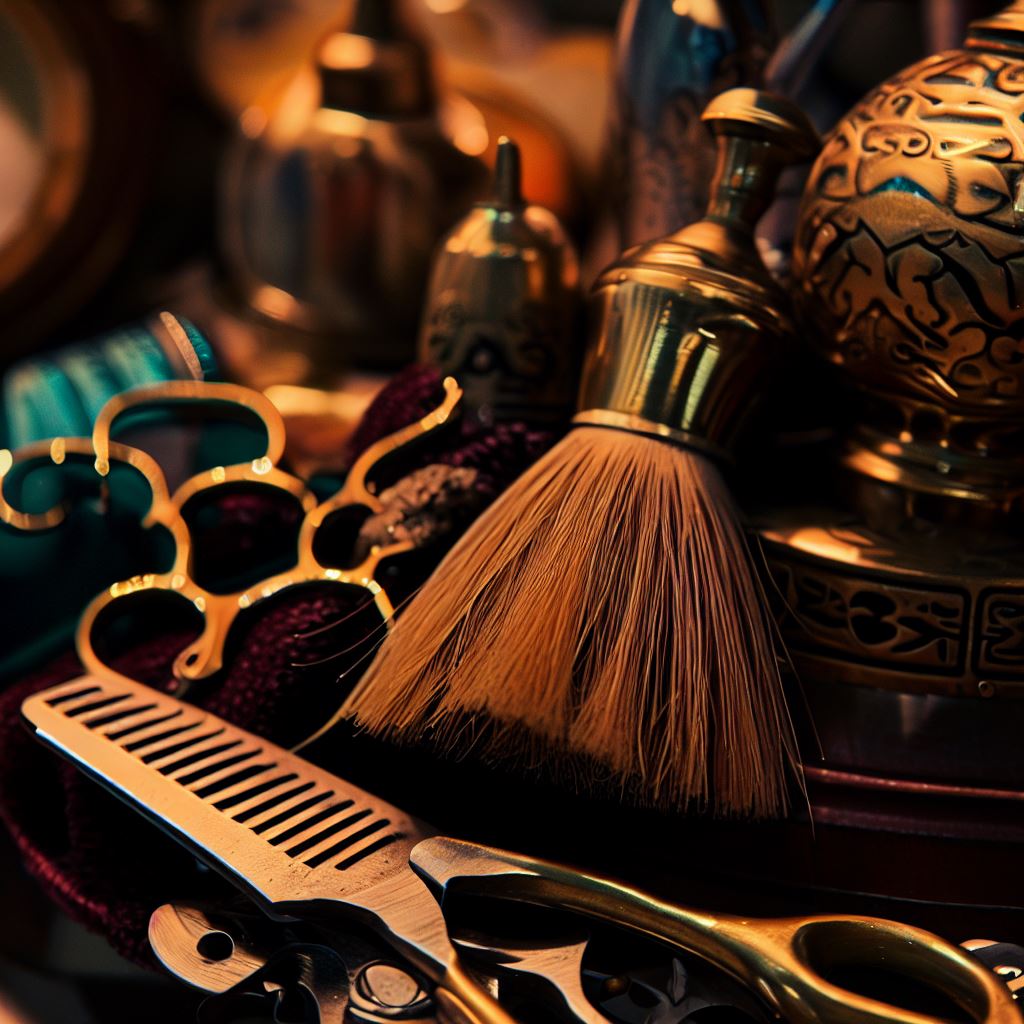Last week, after I wrote about Harry and his sad death, my dear fellow blogger Karla’s comment really resonated with me when she wrote, “Only to have known Harry…we’re losing the best generation.”
Her comment made me think not only about Harry, but also about my dad, whose birthday was yesterday. He passed away in 2000, but if he had lived, he would have turned 119! After thinking about my dad, his barber, Tony, came to mind, because it occurred to me how he also fit into the “best generation” league.
I’ve mentioned before that even though my dad didn’t have a formal education under his belt, he was the smartest man I ever knew. Wise beyond words. He always told me that I would understand things long after he was gone, and he was right. Between my personal grief and my entrance into the final chapter of life, my perception has widened, and it feels as if I am comprehending the world in a deeper, wiser way, just as my father had said I would one day. That being said, as I pondered these old-timers, a realization dawned on me about Tony, but before I go into that, I have to give a bit of a background.
My clean-shaven dad was also a hair fanatic. He never lost his hair, but, instead, it seemed like someone had poured Miracle-Gro into it. Ninety percent of the time, or maybe even more, his barber Tony gave him a number 2 buzz cut. The other cuts were Marine flat top cuts that made him look as if a runaway lawn mower had zipped over the top of his head. My dad didn’t ask for that style specifically, but I think Tony gave him the style just to break things up and make things interesting.
Whenever my dad took my young son to the barbershop in his old jalopy, he always got the same type of number 2 buzz cut for him. I’m sure his grandfather’s (Gido’s) influence led my son to continue the tradition of the number two buzz cut after adolescence, which he cut himself to save money.
Gido was frugal too, actually cheap. He never gave Tony more than three dollars cash for a haircut. My dad had decided that was what his haircut was worth, regardless of inflation. Period. No tip. No nothing. No raise either, even after 20 years, maybe more, of going to Tony’s on a weekly basis.

Before my dad died of emphysema, he was frequently admitted into the ER and then the hospital. There was no time for his traditional buzz cut even though in less than a month’s time, his wired hair stood up and performed endless rows of jumping jacks.
I always picture his team of nurses, running their fingers through his pure white hair, saying, “Your hair is beautiful.”
To my dad, though, his hair was a mess, out of control and unruly. Every time we were about to call Tony to come and cut my dad’s hair, a medical crisis interrupted our plan. Stubborn Dad wouldn’t let anyone else cut into his white mane, no matter how high the strands stood in attention.
It wasn’t until after my dad died that we called Tony to cut his hair one last time. We did it in honor of our dad, who was so adamant about his clean-shaven face and buzz cuts. How could we allow mourners to come and see him in his open casket when his hair was the opposite of what he, and everyone else, loved?
I was so wrapped up in the wake and funeral and losing my dad that I never formally thanked Tony, nor had I seen him ever since. But suddenly, after reading Karla’s comments about how we are losing the best generation, it brought to mind my dad and then Tony, and I started to see the light, wondering how it must have felt for Tony to leave his barbershop, tools in hand, travel to a funeral home and approach the casket where my dad was laid out in his best suit, which he had bought for the occasion long before he was even ill.

I’m sure there were plenty of plugs in the wall to connect his shaver, because even though my dad had always shaved himself, Tony was willing to do it. In addition, his hands must have been shaking as he held his scissors. Sure, he could do a buzz cut in his sleep, but how could he concentrate on doing it on a corpse? Had he even seen a corpse before? Additionally, how could he focus on the task at hand when burdened with grief? Looking at my dad’s face must have flooded him with two decades of memories, recalling the curmudgeon of a man he loved unconditionally despite his cheapness. My dad was the only customer who got away with paying three dollars for a haircut during all those years, while the barber still gave him a smile and a lollipop for his grandson.
It wasn’t about money or the bottom line. The bottom line back then was about humanity, humility, and never bottoming out of character while holding onto dignity, doing the virtuous thing even if it felt morbid. They were men of faith who had faith and hope in simple things like hard work and doing the right thing.
It’s easy to picture my dad, Tony, and Harry, too. Members of the best generation that you could count on because they made you feel like you counted. We ARE losing the men and women of the best generation, but their legacy lives on in the hearts of those who knew them.
Thank you, Tony, your act of kindness and compassion in giving my dad one last buzz cut is a reminder of the power of human connection, even in death. You reminded me of the importance of doing the right thing, even when it’s difficult. Thank you for reminding me of the beauty in the world, even in the midst of sorrow.
Thank you, Dad, for teaching me how age widens perception, like a zoomable flashlight, and helps us to see not only the dirt and debris in life, but also the fairy dust.





